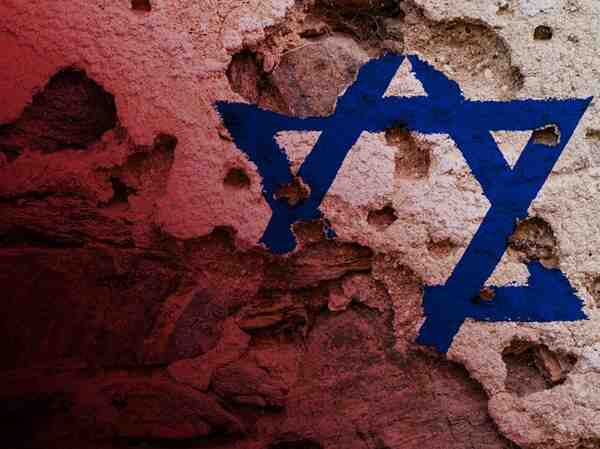
I’ve been asked on a number of occasions this last week about the politics of war, and how the government is (mis)handling some of the steps needed. I want to stay mindful and respectful of the role of our federation, while still expressing our deep love and appreciation for our partners on the ground, especially the local authorities and nonprofits, whom we have supported and funded and boosted significantly thanks to our United Jewish Appeal and Emergency Fund for Israel. I do want to point out something that should, however, be obvious: all of the main assumptions that Hamas had about Israel and its sense of self have been proved wrong. Every single one.
- Israel isn’t fragile. Its challenges, though important, aren’t fatal. People who hate Jews and Israel see the divisions and think that’s what will ruin us. They’re wrong: brittle societies crack and fall at dissent and debate; our flaws and faults make us stronger.
- Israelis and Jews are rooted in the Land of Israel and won’t ever flee. You won’t break us.
- Israel can and will respond with determination to destroy Hamas, even in the face of international pressure.
As Hamas terrorists cower in tunnels, with their Jewish hostages below ground and their Palestinian hostages above, and as we face a wave of Jew-hating bigots who speak up while masking their faces in our state university, I’m grateful for allies and community.
So. Here we are. As of today, 195 Israeli soldiers have been killed since the ground war began in Gaza; a total of 527 have died since October 7. See details of all the fallen soldiers here. As fighting continues in Gaza, troops have discovered another elaborate tunnel system where it has been confirmed that hostages have been held. The IDF has released a video shot inside the tunnel with a camera held by a soldier as he traverses the very long underground structure. The footage includes views of cells where hostages were held. Since the beginning of the war, 12,000 trucks with 1,052 tons of medical equipment have entered Gaza. In coordination with the international community, the IDF continues to facilitate humanitarian and medical assistance efforts for Gazan civilians. See additional details here, as well as here.
In line with statements repeatedly stressed by Israel’s political leadership from the onset of the war that the battle is being waged against Hamas and not against the Palestinian people, last week IDF Spokesperson Daniel Hagari provided an in-depth explanation of efforts made by the military both to prevent civilian casualties and to promote the humanitarian welfare of the Palestinian people. He said, “Hamas sees civilian deaths as a strategy. We see them as a tragedy.” Chief of Staff of the Israeli Air Force (IAF) Omer Tischler addressed claims about civilian deaths by demonstrating how the IAF has conducted “a precise, focused and process-based campaign.” He stressed that evacuation of civilians before attacks allows the IAF to strike and maneuver in areas with minimal civilian presence. He also explained that in war “mistakes can happen,” and the IAF seeks to learn from them. The IDF has revealed numerous examples of strikes that were aborted due to a heavy presence of civilians in close proximity to the target.
The IDF operates a ‘Civilian Harm Mitigation Unit’ made up of senior IDF commanders, intelligence officers, Arabic-speaking soldiers, legal advisors, and other professionals. They monitor the implementation of evacuation recommendations, including by using open-source tools and intelligence sources in real time. According to the IDF, “updated data is continuously fed to IDF air, naval, and ground forces operating in Gaza to increase their awareness of the civilian environment in areas of operation. While it is impossible to completely avoid civilian harm for the reasons detailed above, this mechanism has proven effective in the current hostilities and has saved many lives.” In addition, all military operations carried out by the IDF are coordinated by the Military Advocate General (MAG) Corps, which is responsible for implementing the rules of war within the IDF. Within the MAG, an International Law Department acts “to assist the IDF to achieve its objectives by the law, and specifically international law.” Furthermore, IDF military lawyers are involved in advising commanders on the legal aspects of warfare. Professor Malcolm Shaw, the legal counsel who defended Israel’s case before the ICJ, explained that in contrast to arguments advanced by South Africa, the operations directorate of the IDF issues a daily operational directive that is binding on all IDF forces. It instructs that “[a]ttacks will be solely directed towards military targets while adhering to the principles of distinction, proportionality, and the obligation taking precautions in attacks to reduce collateral damage. The laws of armed conflict allow destruction to civilian property only when there is a military necessity to do so and prohibit harm to property for deterrence purposes only or the purpose of punishment, individual or collective. It is necessary to treat enemy civilians with respect. They should not be treated in a humiliating manner and civilians should not be used to perform activities that might put them at risk to their life or their body.” He also gave examples demonstrating the IDF’s compliance with international law in proportionately attacking military personnel and in mitigating civilian harm. To accomplish the latter, the IDF warns civilians of impending action by the extensive use of telephone calls, leafletting, and so forth; these measures are augmented by the facilitation of humanitarian assistance and the establishment of safe zones.
Rockets
The number of Hamas rocket attacks on Israel remains low; it has not exceeded ten in over a week. In the north, Hezbollah continues to fire at Israeli targets. In response, according to many reports, the IDF has used targeted strikes to eliminate numerous senior Hezbollah and Iranian figures in both Lebanon and Syria. Israel has, however, not stated publicly that it was responsible for those attacks. In the Red Sea, the US, the UK, and Israel continue to defend against attacks by the Iran-back Houthi rebels in Yemen.
Hostages
Israel and Hamas are reportedly resuming negotiations on a new hostage deal. Hamas is demanding a full withdrawal of all IDF forces from the entire Gaza Strip, the release of all Palestinian prisoners from Israeli jails, and international guarantees that Hamas will be allowed to remain in power in Gaza. Israel has previously said that all of these demands are untenable, but it is nonetheless willing to negotiate. At the same time, thousands of Israelis have been demonstrating daily, calling on the government to compromise and do more to bring the hostages home. Last night, a group of hostages’ families and protesters blocked off traffic outside Prime Minister Benjamin Netanyahu’s private residence in Jerusalem; they demanded that the government reach an immediate deal to ensure the return of the remaining hostages. It is believed that 132 hostages remain in Gaza. The IDF has confirmed the deaths of at least 28 of them, citing intelligence and findings obtained by troops operating in Gaza and elsewhere. Since 2014, Hamas has also been holding the bodies of fallen IDF soldiers Oron Shaul and Hadar Goldin, as well as those of two Israeli civilians, Avera Mengistu and Hisham al-Sayed, who entered Gaza of their own accord in 2014 and 2015 respectively.
International Response
A high-ranking Hamas delegation visited Russia last week. Following the Moscow meeting, the Russian Foreign Ministry called on Hamas to release the hostages, including three of whom who hold dual Russian-Israeli citizenship.
A report in Lebanese media claims that a European Ambassador of an unnamed country warned the Lebanese government that there is a heightened probability of an Israeli war against Hezbollah given both the large number of attacks that have originated in Lebanon and the fact that Hezbollah is not complying with UN Security Council Resolution 1701. According to reports, the Ambassador told his Lebanese contacts that US and French intervention have so far kept the IDF from launching a full-scale war, but that Israel’s patience is wearing thin. Israel’s Defense Minister Yoav Gallant said last week that if Hezbollah does not comply with Resolution 1701, there may be no option but to use force to compel the terror group to redeploy north of the Litani River as stipulated by the UN. Israel and Western powers are hopeful that the Lebanese government in Beirut will be able to exert pressure on Hezbollah to cease its attacks on the Jewish state and thus avoid a stronger Israeli response.
Interesting stuff
Jerusalem Strategic Tribune: World Energy Markets: Why they have barely responded to date to the Middle East conflict
Jerusalem Post: As IDF closes in on Hamas leader Yahya Sinwar, is Israel any closer to the hostages being held in Gaza?
Times of Israel: While Iran’s recent strikes show the country’s weakness, its threat of escalation is working.
As reported last week in eJP, Jewish Federations have launched a new fund to help small business owners affected by the war in Gaza.

